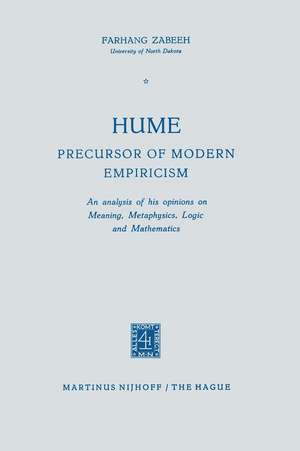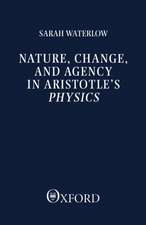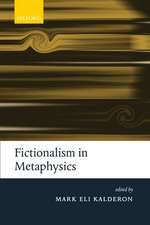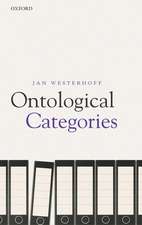Hume Precursor of Modern Empiricism: An analysis of his opinions on Meaning, Metaphysics, Logic and Mathematics
Autor Farhang Zabeehen Limba Engleză Paperback – 1960
Preț: 380.84 lei
Nou
Puncte Express: 571
Preț estimativ în valută:
72.89€ • 75.81$ • 61.08£
72.89€ • 75.81$ • 61.08£
Carte tipărită la comandă
Livrare economică 14-28 martie
Preluare comenzi: 021 569.72.76
Specificații
ISBN-13: 9789401184762
ISBN-10: 9401184763
Pagini: 176
Ilustrații: 166 p.
Dimensiuni: 152 x 229 x 9 mm
Greutate: 0.25 kg
Ediția:1960
Editura: SPRINGER NETHERLANDS
Colecția Springer
Locul publicării:Dordrecht, Netherlands
ISBN-10: 9401184763
Pagini: 176
Ilustrații: 166 p.
Dimensiuni: 152 x 229 x 9 mm
Greutate: 0.25 kg
Ediția:1960
Editura: SPRINGER NETHERLANDS
Colecția Springer
Locul publicării:Dordrecht, Netherlands
Public țintă
ResearchCuprins
One / Statement of the Problem.- 1 Historical Setting.- 2 The Empiricists’Dilemma.- 3 A Brief Comparison.- 4 The Main Issue.- Two / The Principle of Meaning.- 1 The Critique of Metaphysics.- 2 The Limit of Human Knowledge.- 3 The Principle of the Priority of Impressions to Ideas.- 4 The Application of the Principle.- 5 Meaning and Complex Ideas.- 6 Summary of the Chapter.- Three / Evaluation of Hume’s Principle.- 1 Introduction.- 2 On the Relation of Impressions and Ideas.- 3 On the Relation of Words and Impressions.- 4 The Difficulty with the Recurrence of Impressions.- 5 The Difficulty with the Privacy of Impressions.- 6 The Difficulty of Establishing Meaning by Looking for the Origin of Ideas.- Four / The Principle of Analyticity.- 1 Introduction.- 2 Statement of the Principle.- 3 An Analysis of Hume’s Principle.- 4 Hume’s Explanation of Logical Concepts.- 5 Hume’s View of Logic.- 6 Summary of the Chapter.- Five / The Domain of Deductive Reason.- 1 Introduction.- 2 Knowledge and Its Objects.- 3 The Science of Arithmetic.- 4 The Science of Geometry.- 5 Is Knowledge Attainable?.- 6 Conclusion of the Chapter.- Six / Summary and Conclusion.
















